News
Jonathan urges overhaul of INEC chair appointment, warns against rising wave of defections
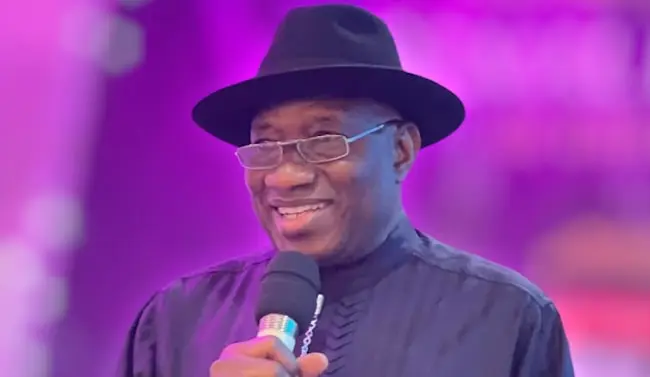
Former President Goodluck Jonathan has called for sweeping reforms in Nigeria’s electoral system, stressing that the credibility of democracy depends on how the Independent National Electoral Commission (INEC) leadership is chosen and how political parties are managed.
Jonathan made the call on Wednesday at the National Action Plan for Electoral Reform Dialogue, organised by the Abuja School of Social and Political Thought. He was represented at the event by Ann Iyonu, Executive Director of the Goodluck Jonathan Foundation.
While acknowledging that the country has made gains since the return to democratic rule in 1999, Jonathan cautioned that serious weaknesses still threaten the system.
“Nigeria has made notable progress since our return to democratic rule, but we must acknowledge that our electoral system still faces significant challenges. If we are truly committed to democracy, we must be bold enough to reform the process to better reflect the will of the people and the principles of justice, accountability, and inclusion,” he said.
Central to his proposals was a review of how the INEC Chairman is appointed. He urged that the responsibility be transferred to an independent panel comprising representatives of the judiciary, civil society, academia, trade unions, and professional associations.
“Credibility of elections rests heavily on the neutrality and competence of the Independent National Electoral Commission. So many questions have continued to be raised on the propriety of the process of appointing the INEC Chairman. I believe that Nigeria can also improve the process by establishing an independent screening and nomination mechanism.
This reform will reduce perceptions of bias, it will promote public trust in INEC, and enhance the legitimacy of its decisions,” Jonathan said.
READ ALSO: Party registration: INEC clears ADA, ANC, PFP, 11 other associations
Beyond INEC reforms, Jonathan also condemned the growing trend of political defections—what he described as “cross-cupping”—arguing that it weakens democratic stability.
“Parties are the foundation of any democracy, but in our context they have become vulnerable to opportunism and instability. We have seen a disturbing rise in the practice of cross-cupping — elected officials defecting from the parties under which they were elected… To remedy this, we should strongly consider the establishment of an independent Office of the Registrar of Political Parties charged with regulating party operations, promoting internal democracy, and enforcing party discipline,” he said.
He proposed that such a registrar should have the legal authority to declare the seats of defectors vacant, citing examples from Kenya and Malawi where similar frameworks have helped protect the integrity of the political system.
Jonathan further stressed the urgency of resolving electoral disputes before winners are sworn into office, warning that delays erode public trust and weaken governance.
“It creates confusion and undermines governance when candidates with unresolved election cases assume office only to be later removed by the courts. This undermines the authority of the office and the credibility of the electoral process… Justice delayed in elections is justice denied, not just for the candidates, but for the electorate,” he said.
To address this, he recommended cutting down the number of courts handling electoral petitions, especially in governorship and presidential cases, so that decisions can be delivered more swiftly.
Closing his address, Jonathan reminded stakeholders that genuine reform is a national duty, not a partisan battle.
“Democracy is not just about casting ballots. It is about building institutions, promoting accountability, and protecting the citizens. The reforms we are discussing today are not partisan. They are patriotic. They are not meant to benefit any one group, but to strengthen Nigeria,” he said.
-
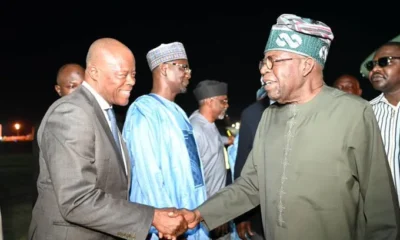
 News7 hours ago
News7 hours agoTinubu returns to Abuja after 12-day trip abroad
-

 Politics7 hours ago
Politics7 hours agoLagos APC hits back at Peter Obi, says Tinubu’s borrowing strategic, not reckless
-
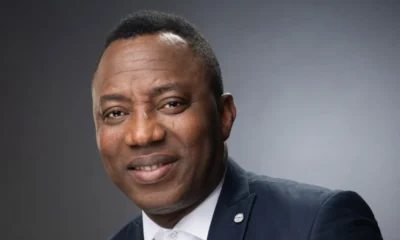
 Politics7 hours ago
Politics7 hours agoSowore sues Nigerian govt, Meta, X for rights violations
-

 Politics2 hours ago
Politics2 hours ago“Tinubu is a well known tax collector” – Former presidential candidate
-
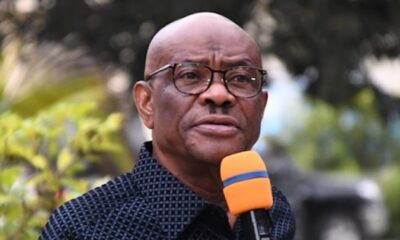
 News7 hours ago
News7 hours agoWike defends Rivers LG elections, accuses Atiku, Obi of misrepresenting the law
-
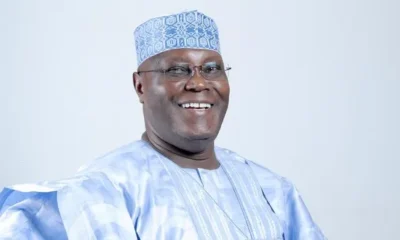
 Politics7 hours ago
Politics7 hours agoPresidency counters Atiku, cites rising reserves, falling inflation as proof of progress
-
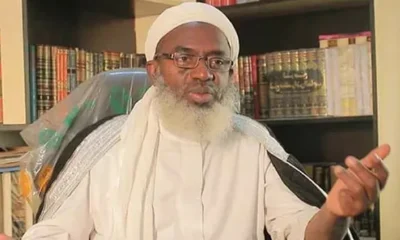
 News7 hours ago
News7 hours ago‘Don’t provoke bandits after peace deals in Katsina’, Sheikh Gumi warns military
-
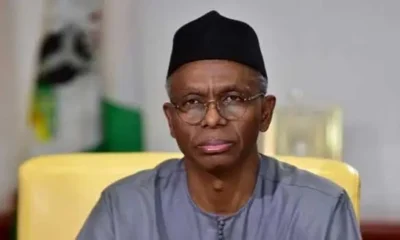
 News7 hours ago
News7 hours ago’Submit yourself for scrutiny over allegations,’ Northern youths challenge El-Rufai
